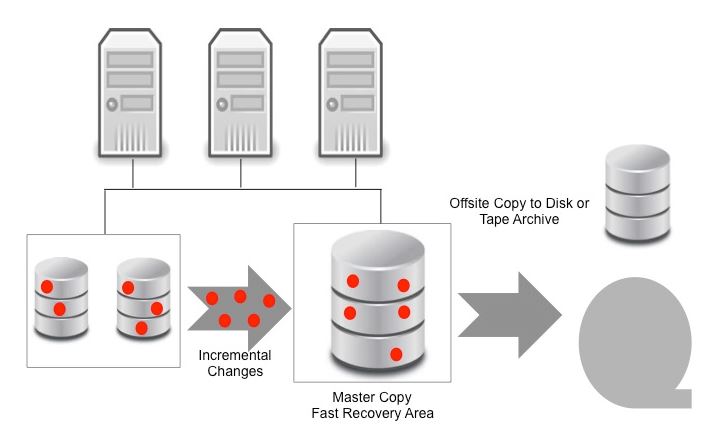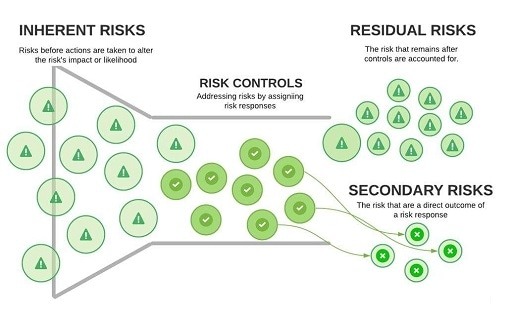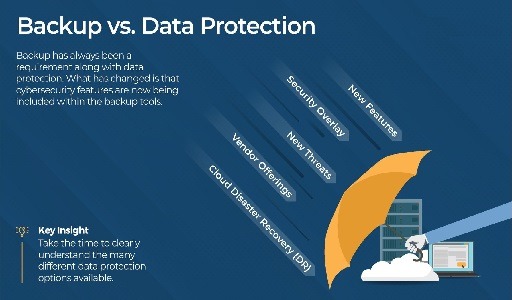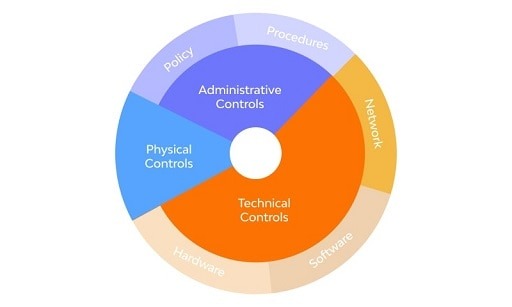Data backup and recovery strategies: Database backups mean a representative data duplicate of your system. Businesses use this data backup to build records of information, mainly business-critical, that has been destroyed.
The backup procedure has important database system elements like the archive logs, the managed file, and the data file structures. In the event of a media failure, the data backup is the key to correctly recovering the business information that has been lost or destroyed.

Why are database backups vital?
Now, if you lose your data, consider the volume of lost revenue for your business. Imagine if the original database of a bank, airline, or even a transport company becomes inaccessible all of a sudden, just for about five to ten minutes; consider the amount of inconvenience your employees and customers will face. Even a single data breach will spell ruin for your business.
Worst-case scenarios will be when this data is destroyed or lost completely due to media failures. Now, if you do not have a backup of this data, imagine the extent of business loss you will suffer.
To prevent such events, your business needs to be very serious when it comes to database backup and recovery in order to resume normal operations as quickly as possible. In the above circumstances, you need data backup and recovery strategies that are well-defined and planned.
When should you resort to database backups?
You should modify the strategy for database backup as per the needs of your organization. For example, if it is convenient for you to drop business data in disk failures, you do not have to perform backups constantly.
Now, if your database needs to be up and ready 24 hours a day and 7 days a week. It is prudent to conduct data backups regularly. The frequency of your data backups and the types of backups that are executed depend upon your company’s custom requirements.
You may also like: Database Management: Some Critical Dos Don’ts of Data Archiving
Plans for database restoration with skilled DBAs
You need a plan for not only database backup but for data to restore as well. This plan should be a written plan with the ideal practices and ways to restore data online.
Here, different classes of data should be maintained, for instance, personal, corporate, financial, and departmental. The threats and dangers of its loss to the organization along with the general method for reducing the price or the loss that will be a result of the failure of a part of the entire data.
There should be a recorded deal for all data formation methods that determine the complete tolerable damage of data and database downtime.
Your DBA needs to test the data restore techniques in multiple situations to ensure that you are able to restore the database in any circumstance. This data restoration technique should be ready for any inspection conducted by assessors, insurers, and auditors.
Specialists from credible companies in the field of database administration and management, RemoteDBA.com, state you should never keep all your database backups in a single place. For example, keeping them on the same drives as your business data.
The concept here is to have a secondary storage space that will ensure that all of your business records are safe and secure. First of all, the data backups should be done to ant local drive on your system. Extra copies of the data backup should be created regularly and kept in places that are separate from the original data site.
Here, using space on cloud-based systems is a good idea for an extra location for your data backup.
Now, the next question is, what exactly should you backup?
You need to determine the data records whose damage could lead to potential income loss and a waste of time. The business should always ensure a data backup is ready in time.
Besides the business data, you need to back up the system database for faster recovery if you need to rebuild the whole method. It is a good idea for you to backup all your product documents and their maintenance scripts.
You may also like: Online Database Applications for Enterprises – Reviewing Some Standard Use Cases
Best practices for database backups for your business
The following are the best practices for database backup –
- Never keep your backup on the same physical drive. This point was mentioned earlier, and it is the most important point that you should consider when it comes to database backups.
- Maintain a schedule for database backups. This will protect the database as in case the backup gets outdated, you have a fresh copy of the data always available.
- You should always verify your database backups by restoring them on a test server. You must ensure that you have good database backups for your company.
- Testing your data recovery strategies is important. This, too, should be conducted on a test server.
- If you have an SQL server, ensure that you conduct a database backup daily. The backup should be done in full as this is the perfect way to protect your business from data loss.
- In case you are not keen to back up the data in full days. You should resort to a differential backup regularly to protect the system.
- Perform backups of transactional logs more regularly than differential logs. If changes take place frequently, you should ensure that the backup for the transactional log is taken after every 10 minutes. In other cases, you can conduct the backup at a regular interval of 30 to 60 minutes.
- Never forget to backup your business’s system databases regularly. This will keep your database protected well.
Therefore, it is evident that performing data backup and recovery strategies for your company is very important from the above. This also holds for a small business unit.
If you do not have a full-time DBA to manage the system and execute the database backups for you, it is prudent to bank on credible remote DBA companies for the task. Hiring them is a cost-effective method to ensure that your database is optimized well and its records are regularly backed up with success.
Would you like to read more about data backup and recovery strategies-related articles? If so, we invite you to take a look at our other tech topics before you leave!










